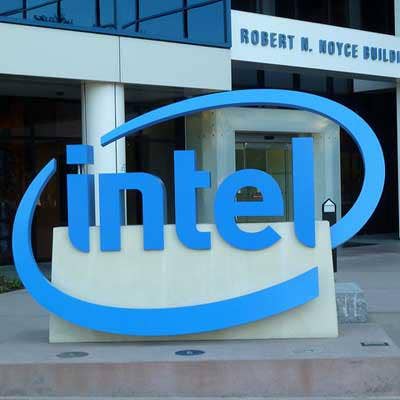Intel Vows Better Communication With Partners About CPU Shortage

Intel's channel organization is vowing increased communication and transparency with partners on issues such as the current CPU shortage, which has caused delays, price hikes and other challenges this year.
In an exclusive interview with CRN, Todd Garrigues, director of partner sales programs at Intel, said better transparency about supply issues, new business opportunities and new technologies is one of the company's top priorities for partners heading into 2019.
"We got some feedback — some critical feedback if I'm honest — from some partners through our advisory boards, and we're working hard to make sure we do better at that," he said. "The request, bluntly, was just to work harder at being transparent as close to real time as possible. And we took that to heart — a lot of internal discussions on how we enable that."
[Related: Intel’s Roadmap and Future Products: 5 Things Partners Should Know]
One of the challenges, Garrigues said, has been engaging with Intel's broader base of partners that the company may not have one-on-one relationships with. To mitigate the issue, the Santa Clara, Calif.-based company is investing more in its relationships with distributors to boost Intel's signal.
"One of the big priorities I've placed on this year is really working very close with our distribution partners who do serve that broad channel base more directly," said Jason Kimrey, Intel's U.S. channel chief. "I would tell you that we are having much more direct, open transparent dialogue with them to help them plan and help our mutual customers plan to roadmaps and plan around the supply."
Kimrey, who is Intel's general manager of U.S. channel scale and partners, said the communication plan is part of Intel's increased investment in the channel, which began this year and will continue into 2019. The increased investment, he said, has been enabled by a reorganization this year of Intel's channel sales group that brought all its activity with distributors, solution providers, ODM partners and broader channel partners under one umbrella.
"Since we aligned our channel organization under a single program this year, our investment in the channel has gone up," Kimrey said. "I think the recognition of the importance of the channel has gone up. I think you'll see that continue to play out next year."
Intel's CPU shortage has lasted for several months now. The company has said that supply issues would not prevent Intel from reaching its 2018 revenue, but the shortage is having a greater impact on the broader PC market. Forecasts for laptop sales have shrunk, and some OEMs, including Acer and Asus, have reported lower-than-expected sales.
Some channel partners have told CRN that Intel's shortage has resulted in delayed shipments and increased costs.
Andrew Piland, chief operating officer at San Diego-based Datel Systems, said the supply issues have continued to impact his company. One of Datel's best-selling processors has been the eighth-generation Intel Core i5-8500, but it has been struggling to obtain enough stock for the systems Datel builds for customers. As a result, Datel has been resorting to the more expensive Core i5-8600, which has cut into the company's margins because Datel's customers were already locked into lower prices for orders.
He said Intel's commitment to increased communication with partners sounds like great news, but only if they can pull it off and fix the supply issue.
"I don't know if I will believe it until I see it," Piland said. "Ultimately actions speak louder than words. I have not seen a lot of action."
Kent Tibbils, vice president of marketing at ASI, a Fremont, Calif.-based distributor, said Intel has been very upfront about the shortage issue this year, communicating with distributors about supply challenges as early as July. He said the company has also been open about the impact of tariffs.
"They were out early about it, which was something they don't normally do," he said.
Since publicly acknowledging the CPU shortage several months ago, Intel has announced new initiatives to improve chip supply, including an additional $1 billion invested in manufacturing capacity. Earlier this week, the company announced it would expand manufacturing sites in Oregon, Ireland and Israel starting next year, which will allow Intel to "respond more quickly to upticks in the market."
Ann Kelleher, an Intel executive who was put in charge of manufacturing operations in October, said in this week's announcement that the expanded capacity will "reduce our time to increased supply by up to roughly 60 percent," adding that Intel will continue working with external foundries in some cases.
"As we invent more products for a broader set of customers, you can expect us to be strategic about the application of Intel’s differentiated manufacturing capability and the selective use of foundries," she said.